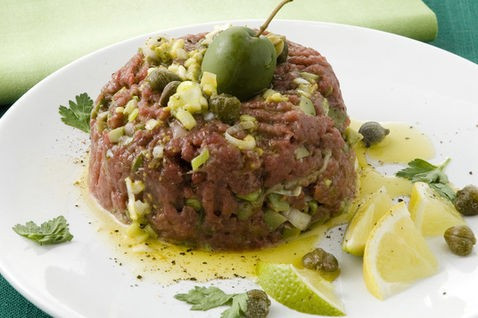Horsemeat: The Joy of Horse Tartare
Findus, Tesco and Burger King horsemeat scandal baffling Italian and Japanese food-lovers

Britain's horsemeat scandal has worried many meat eaters, fearful at the possibility of having tucked in to parts of one of Britain's best-loved animals in the belief they were munching on a Burger King Whopper or Findus lasagne.
But while British and Irish investigators try to find out how horsemeat entered the food chain, observers abroad are less scandalised.
Horsemeat may be taboo in the UK but elsewhere, from Italy to Mexico to Japan, it is a regular on the menu.
Horse tartare, meatballs and rare-cooked equine steaks are savoured in Italy, which is one of the largest consumers of horsemeat in the world. It has been estimated that Italians eat an average of 1.3kg of horse per person a year. About 75,000 horses were butchered for consumption in Italy in 2012.
Horse is consumed mainly in a few areas such as Lombardy, Veneto, Friuli-Venezia Giulia, Trentino-Alto Adige/Südtirol, Apulia and the town of Parma in Emilia, which tops the horsemeat eaters' consumption table with an average of 3kg per person per year.
As my father comes from Parma, I have eaten my share of horsemeat from an early age. My late grandmother's fried horse meatballs were a huge hit with the family. Despite fears that a horse drug, bute (phenylbutazone), is dangerous to humans, I am pretty well.
Italians' appetite for horses survived an eighth century ban by Pope Gregory that forbade horse-eating. He described it as "abominable" because of its links to pagan practice and ceremonies.
Despite Italy's deep Christian faith, horse eaters proved resilient.
Icelanders reportedly went further by rejecting efforts to convert them to Christianity in the first millennium because it would mean giving up their traditional minced or fondue horse delicacies.
What's so special about horsemeat?
It was not until the Pope conceded to their demand to be allowed to continue eating hosemeat that the island nation converted in AD1000.
So, what is so special about horsemeat.
Well, it is high in iron and often recommended to pregnant women, children and the anaemic. Unlike beef, it also contains glycogens - which give it its peculiar sweetish taste - and has moderate levels of cholesterol.
Above all else, however, it is tasty and tender, particularly when cooked for a short time. Hence, the preference for rare steaks or tartare preparations.
Horsemeat Scandal: Time to Turn Vegetarian [BLOG]
Umberto Bacchi is an IBTimes UK foreign news reporter

© Copyright IBTimes 2025. All rights reserved.




















